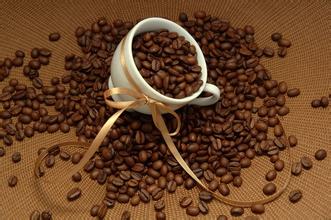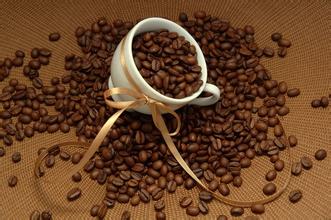Why do you choose to drink coffee among the ten elements of drinking coffee?
Coffee can relieve fatigue. In order to eliminate fatigue, we must supplement nutrition, rest and sleep, and promote metabolic functions, and coffee has these functions.
5. Three cups of coffee a day can prevent gallstones. For caffeinated coffee, it stimulates gallbladder contraction and reduces cholesterol, which is prone to gallstones. The latest Harvard University researchers found that men who drank two to three cups of coffee a day were less than 40% likely to get gallstones.
6. Drinking coffee regularly can prevent radiation damage. Radiation damage, especially the radiation of electrical appliances, has become a prominent pollution at present. Indian Barba atomic researchers have come to this conclusion in mouse experiments and say it can be applied to humans.
7. The health care and medical function of coffee. Coffee has the functions of anti-oxidation and heart protection, strengthening muscles and bones, benefiting waist and knees, appetizer, eliminating fat and accumulation, promoting orifice and dehumidification, promoting blood circulation and removing blood stasis, relieving wind and relieving spasm and so on.
8. The influence of coffee on mood. Experiments show that the average person absorbs 300 milligrams of caffeine (about 3 cups of brewed coffee) a day, which has a good effect on a person's alertness and mood.
The following six types of people are not suitable for drinking coffee:
Suffering from high blood pressure, coronary heart disease, arteriosclerosis and other diseases-long-term or heavy consumption of coffee can cause cardiovascular disease.
Older women-Coffee reduces calcium and causes osteoporosis. After menopause, women need to add ten times the amount of calcium every day.
People with stomach problems-drinking too much coffee can worsen stomach problems.
Pregnant women-drinking too much coffee can lead to fetal malformation or miscarriage.
People with vitamin B1 deficiency-vitamin B1 can maintain the balance and stability of the nervous system, and coffee has a destructive effect on it.
Cancer patients-drinking too much coffee is at risk of cancer to normal people.
Because coffee stimulates the brain so strongly that it directly affects the mental state, when coffee first spread to Europe in the 16th century, some people advocated that a doctor's prescription was needed to drink coffee. Over the past four or five centuries, the vigorous development of coffee culture has made it impossible for people to be without coffee for a day, but the medical community has gradually proposed that the impact of coffee on the human body is not only refreshing.
Let's start with the refreshing effect of coffee. According to the study, drinking 100-200 milligrams of caffeine a day is refreshing and harmless, while the best time for workers to drink coffee is when they have breakfast in the morning, when they first arrive at the office, and after a lunch break. Prepare for the busy afternoon work. At this time, a cup of coffee can avoid the usual drowsiness after meals.
The study also found that, for the average person, a cup of coffee in the morning and afternoon is the best, more than this amount, not only can not achieve the pick-me-up effect, but also make people feel restless.
Drinking too much coffee can also lead to calcium loss, which is a major threat to osteoporosis for the elderly, especially middle-aged and elderly women. Two or more cups of coffee a day will increase the risk of fracture by about 50%. Experts believe that when the elderly drink coffee, one cup a day is the safest.

Important Notice :
前街咖啡 FrontStreet Coffee has moved to new addredd:
FrontStreet Coffee Address: 315,Donghua East Road,GuangZhou
Tel:020 38364473
- Prev

What are the health benefits of drinking coffee regularly?
Tannic acid: the boiled tannic acid will decompose into pyrouric acid, so the coffee that has been brewed for too long will taste worse. Fat: the most important ones are acid fat and volatile fat. Acidic fat: that is, fat contains acid, its strength will vary according to the type of coffee. Volatile fat: is the main source of coffee aroma, it is a kind of aroma will emit about 40 kinds of aromatic substances. egg white
- Next

The traditional way of drinking coffee
1. Italy: it is a kind of espresso in a small cup, which can be cooked and drunk quickly. People who have been in contact with the coffee for a long time can get used to its heavy taste. 2. France: the French prefer light coffee, which is generally made from moderately roasted and roughly ground coffee beans by soaking. I like to drink it with chicory root. 3. UK: coffee powder is usually filled
Related
- Does Rose Summer choose Blue, Green or Red? Detailed explanation of Rose Summer Coffee plots and Classification in Panamanian Jade Manor
- What is the difference between the origin, producing area, processing plant, cooperative and manor of coffee beans?
- How fine does the espresso powder fit? how to grind the espresso?
- Sca coffee roasting degree color card coffee roasting degree 8 roasting color values what do you mean?
- The practice of lattes: how to make lattes at home
- Introduction to Indonesian Fine Coffee beans-- Java Coffee producing area of Indonesian Arabica Coffee
- How much will the flavor of light and medium roasted rose summer be expressed? What baking level is rose summer suitable for?
- Introduction to the characteristics of washing, sun-drying or wet-planing coffee commonly used in Mantenin, Indonesia
- Price characteristics of Arabica Coffee Bean Starbucks introduction to Manning Coffee Bean Taste producing area Variety Manor
- What is the authentic Yega flavor? What are the flavor characteristics of the really excellent Yejasuffi coffee beans?

